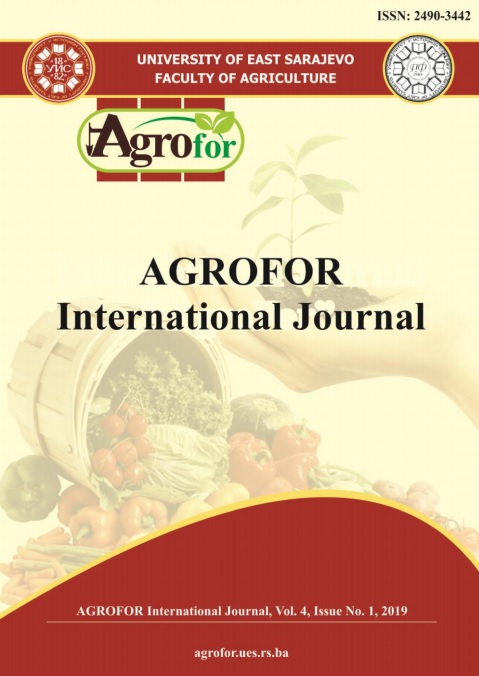MICROBIOLOGICAL QUALITY, ANTIOXIDATIVE AND ANTIMICROBIAL PROPERTIES OF SLOVENIAN BEE POLLEN
DOI:
https://doi.org/10.7251/AGRENG1901082SAbstract
Bee pollen can be considered as perfect food with a great nutritional value, high
protein and essential amino acid content, vitamins and minerals. It can be a source
of healthy nutrients, but as an animal product also of harmful microbial
contaminants. The aim of our study was to determine potential health risks and
benefits of Slovenian bee pollen. We determined its i) microbiological burden:
aerobic mesophilic microorganisms, yeast, molds, and coliform bacteria in CFU/g;
ii) polyphenolic content: the Folin-Ciocalteu method (mgGA/g); iii) antioxidative
potential (AOP): DPPH• scavenging assay (EC50 in mgGA/L); and iv)
antimicrobial activity (MIC): microdilution method on Escherichia coli, Listeria
monocytogenes and Campylobacter jejuni. We analyzed 14 samples of bee pollen
gathered from 7 Slovenian geographical regions, from April until May 2017. The
microbiological burden was high, with all indicator tests reaching up to 6.78
log10CFU/g of bee pollen, but the number of coliform bacteria in all samples from
2.00 to 4.48 log10CFU/g. The polyphenolic content and AOP of the samples was
good, with up to 13.1 mg GA/g and as low as 2.4 mgGA/L (EC50), respectively.
Interestingly, antimicrobial activity was not always in correlation with
polyphenolic content, but always strongly against E. coli, substantial against C.
jejuni, and negligible against L. monocytogenes. Our results show a great health
potential of bee pollen for human health, but also the need of bee pollen processing
improvement for its standardized quality and safety.

